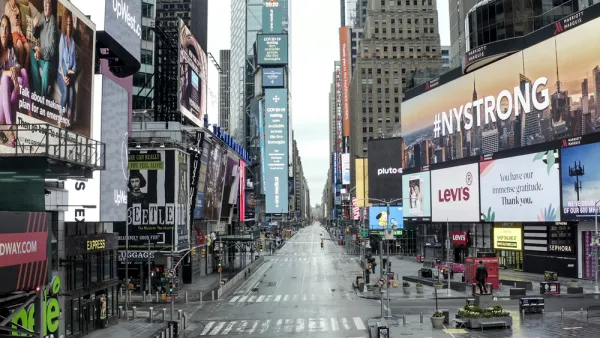Rising housing costs and the growth of more urbanized, amenity-rich small metros are driving college-educated workers away from “superstar cities.”

Increasingly expensive coastal cities are bleeding both low-income workers and college-educated workers, according to an article by Emily Badger, Robert Gebeloff, and Josh Katz in The New York Times. “This pattern, visible in an Upshot analysis of census microdata, is startling in retrospect. Major coastal metros have been hubs of the kind of educated workers coveted most by high-powered employers and economic development officials.”
Even before the pandemic, college-educated working-age adults were leaving cities like San Francisco and New York at higher rates every year. “A chart showing net domestic migration of college-educated working-age adults in the San Francisco metro area, going from an average annual gain of roughly 10,000 people before the pandemic to a loss of 25,000 people in 2021.”
Now, “affordability has broadly been eroding up the income spectrum in the country’s most expensive metros. As these regions have become richer, that has, among other things, helped fuel the rise in their housing prices.” The workers leaving these cities are migrating to other, less expensive but still thriving metro areas such as Phoenix, Atlanta, and Houston.
Read the source article for an in-depth analysis of domestic migration trends, the shifting needs and expectations of Americans, and the changes in smaller towns that have made them more attractive in recent years.
FULL STORY: Coastal Cities Priced Out Low-Wage Workers. Now College Graduates Are Leaving, Too.

Analysis: Cybertruck Fatality Rate Far Exceeds That of Ford Pinto
The Tesla Cybertruck was recalled seven times last year.

National Parks Layoffs Will Cause Communities to Lose Billions
Thousands of essential park workers were laid off this week, just before the busy spring break season.

Retro-silient?: America’s First “Eco-burb,” The Woodlands Turns 50
A master-planned community north of Houston offers lessons on green infrastructure and resilient design, but falls short of its founder’s lofty affordability and walkability goals.

Test News Post 1
This is a summary

Analysis: Cybertruck Fatality Rate Far Exceeds That of Ford Pinto
The Tesla Cybertruck was recalled seven times last year.

Test News Headline 46
Test for the image on the front page.
Urban Design for Planners 1: Software Tools
This six-course series explores essential urban design concepts using open source software and equips planners with the tools they need to participate fully in the urban design process.
Planning for Universal Design
Learn the tools for implementing Universal Design in planning regulations.
EMC Planning Group, Inc.
Planetizen
Planetizen
Mpact (formerly Rail~Volution)
Great Falls Development Authority, Inc.
HUDs Office of Policy Development and Research
NYU Wagner Graduate School of Public Service




























